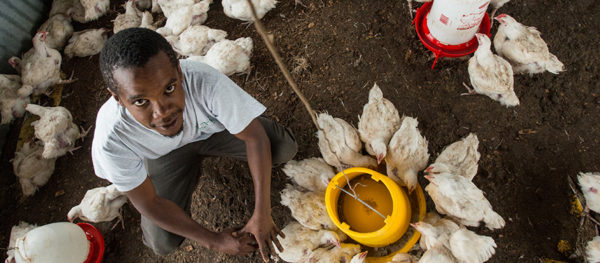Tag: ICT

Putting the Answers to Successful Farming at Young People’s Fingertips
Africa & Middle East: Vanessa Mukhebi of production company Mediae discusses the digital innovations helping youth farmers with agronomic and budgeting challenges.
Read MoreHow ICTs Will Transform Agriculture
Africa & Middle East: CTA Director Michael Hailu discusses how ICTs can entice young people into agricultural professions and modernize the sector.
Read More

